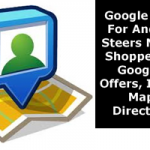
Los Angeles — In an attempt to keep pace with its rivals, Facebook is vividly clear about the future of its platform: third-party apps are the key to attracting and keeping users inside of its vast ecosystem. In yet another major stride toward bolstering its app platform, the social media humongous Facebook has announced it plans to enter the app craze with its own online hub called the “App Center” in coming weeks, hitting an important milestone in the brewing app wars.
The social networking giant on Wednesday said that it is shortly coming up with its own central app hub inside Facebook itself, making it easier for consumers to find games and other Facebook-connected apps on the social network, including its first storefront for selling paid apps, in the company’s latest effort to expand the ways its makes money from its massive audience. Besides, developers are being asked to follow guidelines enabling them to submit and feature their apps on Facebook that can be included upon launch.
Meanwhile, the new App Center, which Facebook said will be unveiled in the next few weeks, comes as the company is bracing for an initial public offering that would value the company between $77 billion and $96 billion.
Until now, users had a handful of options for searching apps on Facebook using the same search bar they use to find people, groups and events; but recently the company touted “social discovery” as its strong suit, as users were encouraged to find apps through their news feed. Soon, they will be able to search from a dashboard that resembles much like Apple’s App Store or Google Play–complete with details and ratings for each app.
For more than 900 million people that use Facebook, “the App Center will become the new, central hub to find great apps like Draw Something, Pinterest, Spotify, Battle Pirates, Viddy, and Bubble Witch Saga,” Facebook’s Aron Brady said in a blog post. “Everything has an app detail page, which helps people see what makes an app unique and lets them install it before going to an app.”
However, it is significant to note that today’s roll out was what Facebook spokeswoman Malorie Lucich portrayed as a call to developers to submit images and copy so that Facebook can consider promoting their apps. She further added that Facebook’s App Center is designed to feature the best social apps through a personalized discovery page. You will be able to access it on the Web as well as in the native Android and iOS Facebook apps. As you can see in the screenshot below, the URL will be facebook.com/appcenter, WHICH right now takes you to a “The page you requested was not found” error page.

(Credit: Facebook)
Although the new app hub looks pretty identical to its Apple and Google counterparts, it will work very differently. It is more of a centralized hub so that everyone–users and developers alike–knows where to go to find Facebook apps. Since many “Facebook apps” are actually iOS or Android apps with Facebook integrations, it will refer users to other app stores to download them. And that did not exist before.
For instance, if you are a person who prefers word games — something Facebook would know from your Facebook behavior — the App Center will then display those sorts of apps for you. Then, when you select an app you like, you will be sent to the Apple’s App Store or Google’s, depending on your device. “We are certainly not looking at it any competitive way” with Google or Apple, said Lucich.
Interesting, the App Center will, for the first time, permit software developers to market their apps to consumers directly on Facebook:–“The App Center gives developers an additional way to expand their apps and creates opportunities for more types of apps to be successful,” a Facebook spokesperson said in a statement. “We are excited to give developers a new way to flourish their apps with the App Center. Get ready for the upcoming user launch by creating your app detail page today.”
Finally, the concept is very impressive and is also another potential revenue stream insofar as splitting the cash on paid apps and in-app purchases. And more app use, of course, means more engagement within the Facebook platform. That means more ads. And with the wealth of new data Facebook will receive by looking at the apps its subscribers are using, it also means better targeted ads.
Well, now it is the choice of developers to make their apps worth downloading. And what is valuable for developers is valuable for Facebook.


